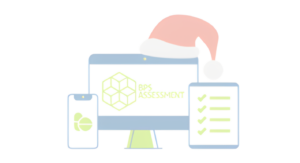As a medical student, preparing for the Prescribing Safety Assessment (PSA) can feel overwhelming, especially with your busy schedule. But here’s the truth: starting early is the key to success. The 2025 PSA exams may seem far away, but by beginning your preparation now, you’ll give yourself the best chance to excel when exam day arrives. Let’s explore how you can effectively use your time to get ahead of the curve and maximise your results.
1. Understand the Exam Format and What’s Expected of You
The first step to tackling the PSA is familiarising yourself with the structure of the exam. The PSA assesses your ability to prescribe safely across a number of different areas, including clinical scenarios, calculations, adverse drug reactions, and more. Knowing the layout of the exam, the question formats and how much time to allocate for each means you can focus your study time on topics that need the most attention.
2. Make a Study Plan – and Stick to It
A solid study plan is crucial for PSA Exam preparation. Break your learning into manageable chunks, spread over the coming months. Allocate time each week, or if you can’t manage that, each month to revise specific topics such as drug interactions, prescribing in special populations, and common prescribing errors.
Don’t forget to incorporate revision of guidelines like the BNF, BNFc and NICE, including how best to search for terms and key pieces of information as this will help you manage your timings in the real exam.
By pacing your learning over a longer period, you reduce the risk of burnout and improve retention of key prescribing concepts.
3. Utilise the Official PSA Exam Resources
The official PSA website provides invaluable resources to help you prepare, including practice papers, FAQs, and information about the lead-up and what to expect post-exam. Make these resources your first port of call. Complete the practice papers to gauge your progress, identify your weak areas, and focus your revision accordingly. The practice papers will help you become familiar with the types of questions and scenarios you’ll face in the actual exam.
Additionally, reviewing the official FAQs on the PSA website is a great way to address any lingering concerns or questions about the exam structure and what’s expected of you.
4. Leverage BPS Assessment Resources
Beyond the official resources, the BPS Assessment learner portal offers a suite of tools designed to support your PSA journey. These include PSA Prep, a series of 9 free eLearning sessions specifically tailored to PSA content. These sessions break down each of the 8 question items found in the exam with future details on the competencies being tested, what to look out for and how much time to spend on each style of question. These online resources are available at any time and on any device, giving you the freedom to tackle them at your own pace.
The earlier you begin working through these resources, the more confident and prepared you’ll feel as exam day approaches.
5. Practice Makes Perfect
The PSA is a practical exam that requires you to think on your feet and apply your knowledge to real-world prescribing scenarios. As such, regular practice is key. Set aside time to work through prescribing questions, focusing on different case scenarios and drug interactions. The more you practise, the better you’ll become at identifying pitfalls and handling clinical prescribing under pressure.
6. Find Study Partners or Create Study Groups
Studying with peers can be incredibly useful when preparing for the PSA. Not only can you share resources and ideas, but explaining concepts to others is a great way to reinforce your own understanding. Group discussions also allow you to tackle complex clinical scenarios together, gaining diverse perspectives and strategies for answering tricky questions.
Consider joining or creating an online PSA study group if you can’t meet in person. The collaborative learning environment can keep you motivated and accountable as you prepare.
7. Stay Consistent and Don’t Procrastinate
Procrastination is the enemy of any exam success. But it’s particularly easy to put off preparation for the PSA, especially when the exam dates seem so far away. Nevertheless, small, consistent efforts over time will pay off in the long run. Aim to dedicate a little time each week to your PSA studies. By January, you’ll find yourself well-prepared without the stress of last-minute cramming.
The earlier you start, the more confident you’ll be when your PSA exam date approaches in 2025.
8. Take Care of Yourself Along the Way
Lastly, don’t forget to balance your studies with self-care. Preparing for the PSA can be stressful, so make sure you’re getting enough rest, exercise, and downtime. A well-rested and healthy mind will absorb information more effectively, keeping you sharp and focused for exam day.
Key Takeaways
Starting your PSA prep early is the most effective way to ensure you feel confident and prepared when exam day arrives. By taking advantage of the official resources, utilising the BPS Assessment tools, and maintaining a consistent study routine, you’ll set yourself up for success.
Don’t wait until the last minute—get ahead of the curve now, and you’ll thank yourself later when you’re cruising through the PSA with confidence!




